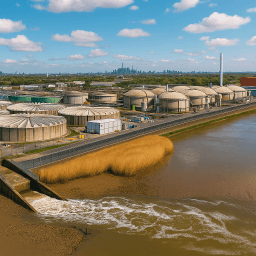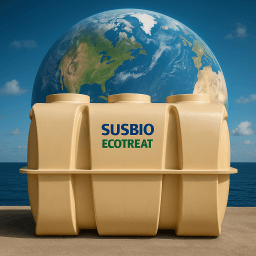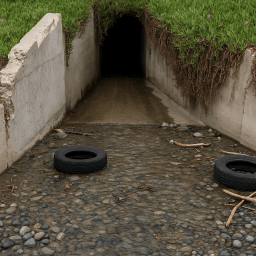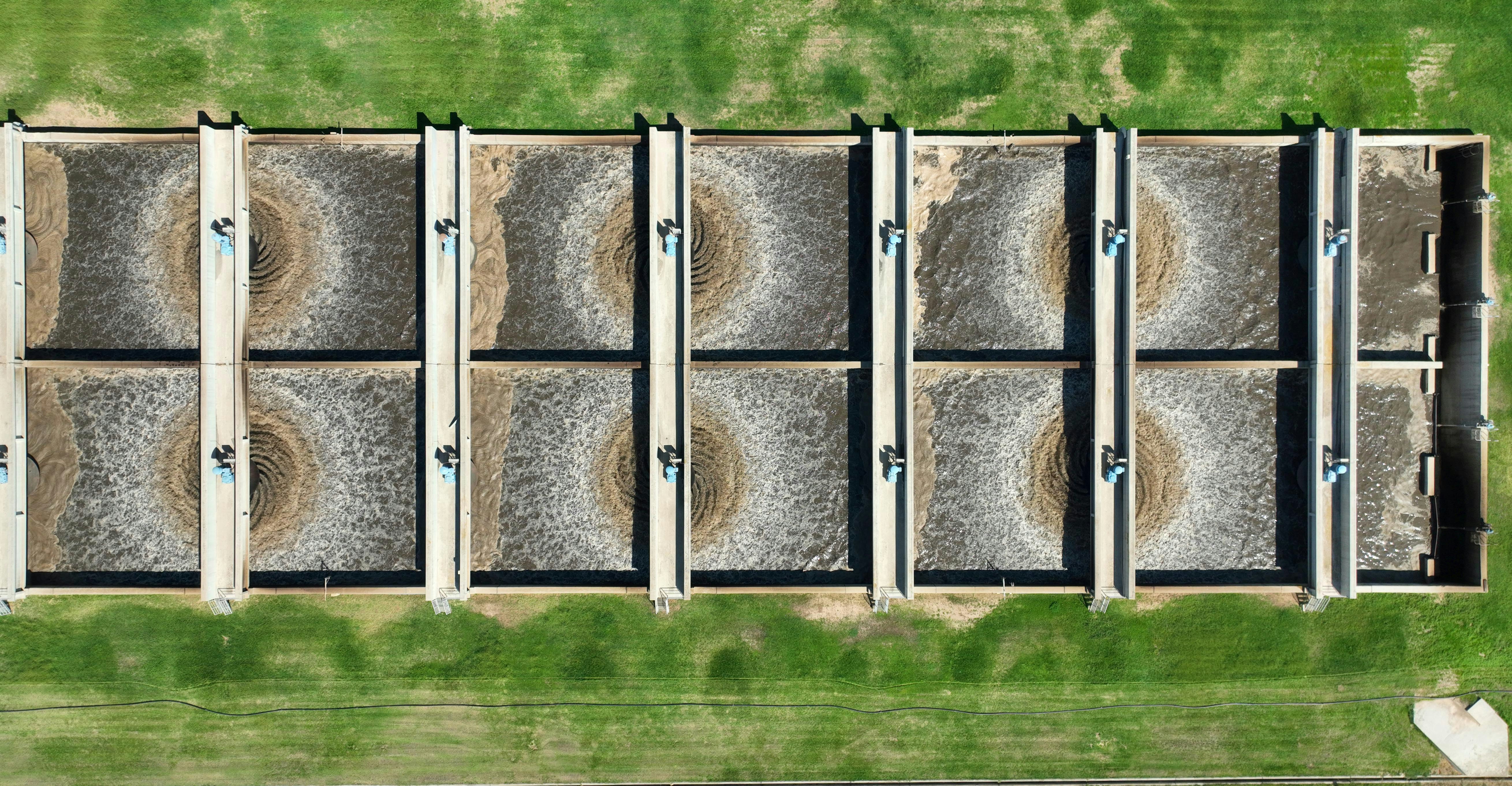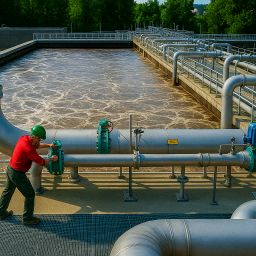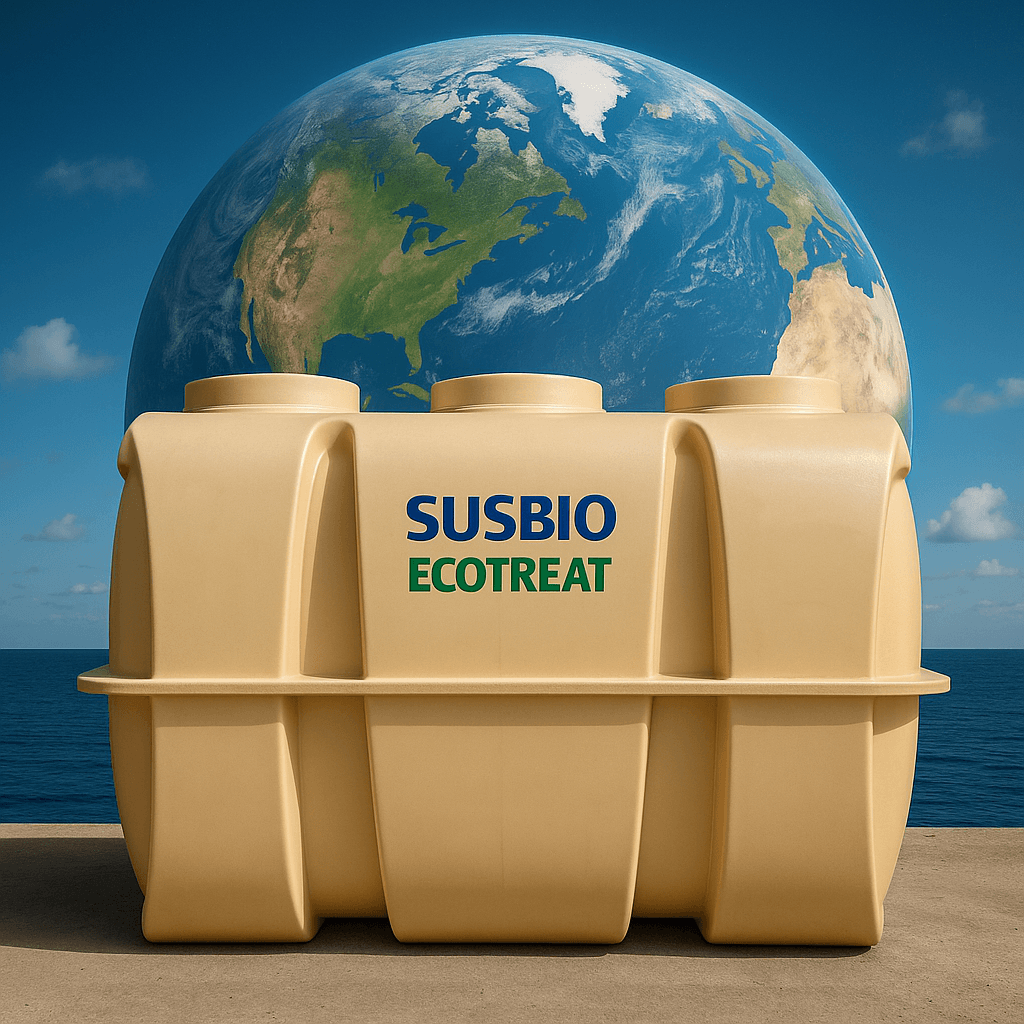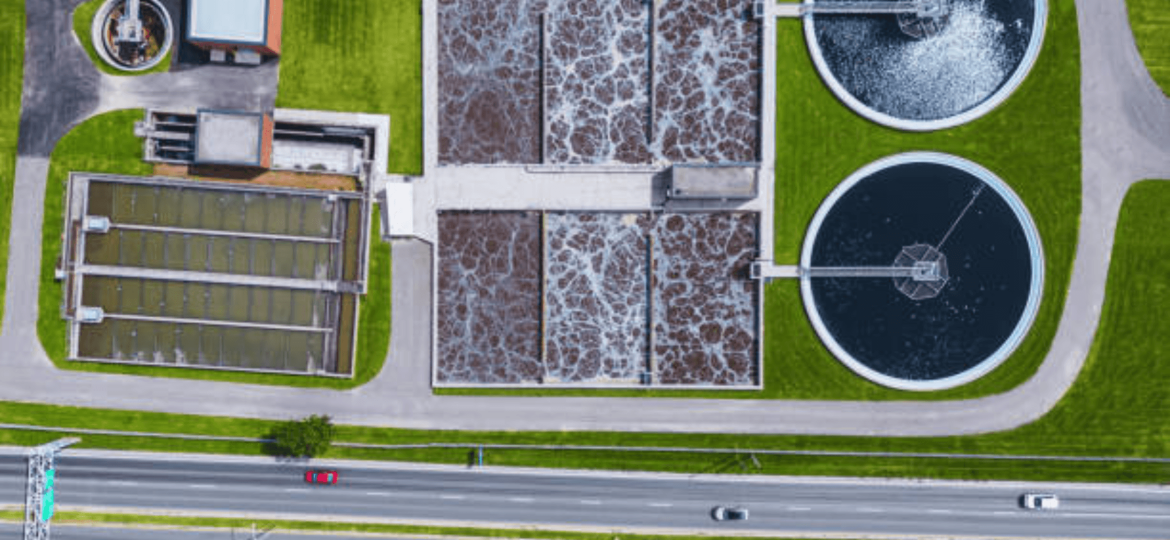
Introduction
In today’s world, efficient water management is more critical than ever. Industrial wastewater, if not properly treated, can pose significant environmental risks and financial liabilities. As industries expand, so does the demand for responsible and compliant sewage treatment solutions. Choosing the right sewage treatment plant (STP) for your business can not only ensure regulatory compliance but also improve operational efficiency and contribute to sustainability efforts.
Why Your Industry Needs a Sewage Treatment Plant
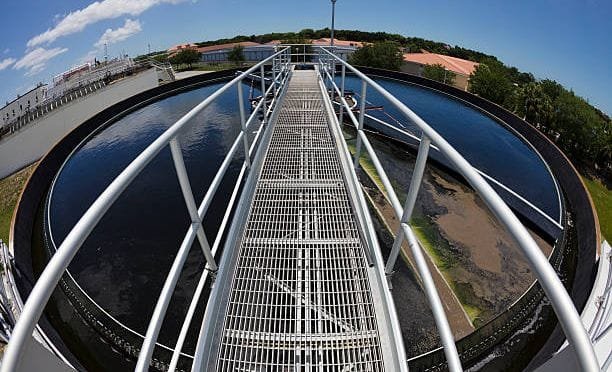
Industries such as textiles, chemicals, pharmaceuticals, food processing, and manufacturing generate large volumes of wastewater containing pollutants that need to be treated before discharge. A well-designed STP can help businesses meet strict discharge standards, avoid fines, and even enable the reuse of treated water for non-potable purposes, such as irrigation or cooling processes.
Sewage Treatment Plant for Food Processing Industries
The food processing industry generates wastewater that contains organic matter, oils, fats, and food particles. Effective treatment of this wastewater is critical to meet environmental regulations and reduce operational costs.
Why Food Processing Industries Need STPs:
- High Organic Load: Wastewater from food processing contains high levels of organic solids, which need to be broken down efficiently.
- Oils and Fats: Food processing units generate oily wastewater, which can clog pipes and harm the ecosystem if not treated properly.
- BOD and COD Reduction: STPs can reduce biological oxygen demand (BOD) and chemical oxygen demand (COD), essential for food industry wastewater.
Recommended STP Types:
- Aerobic Systems: Best for high organic load due to their efficient breakdown of organic materials.
- Anaerobic Systems: Ideal for high-strength wastewater with low oxygen demand, reducing energy consumption.
Key Benefits:
- Water Reuse: Treated water can be reused for cleaning, cooling, or irrigation.
- Regulatory Compliance: Ensures compliance with wastewater discharge standards.
Cost Considerations:
- Installation Costs: Can range from INR 5,00,000 to INR 20,00,000 for capacities from 10 KLD to 100 KLD, depending on the complexity of treatment required.
- Maintenance: Ongoing costs for cleaning and maintenance of filters and tanks.
Sewage Treatment Plant for Pharmaceutical Companies
Pharmaceutical industries produce highly contaminated wastewater that includes chemical residues, solvents, and heavy metals. STPs for pharmaceutical companies must meet stringent environmental regulations to prevent pollution.
Why Pharmaceutical Industries Need STPs:
- Chemical Residues: Wastewater can contain toxic chemicals, requiring specialized treatment.
- Heavy Metals: These are common in pharmaceutical manufacturing and must be removed to meet discharge standards.
- Regulatory Compliance: Adhering to health and environmental regulations is critical for pharmaceutical companies.
Recommended STP Types:
- Membrane Bioreactor (MBR): Ideal for treating pharmaceutical effluent, as MBRs can handle high levels of toxicity and ensure high-quality effluent.
- Advanced Oxidation Processes (AOP): Useful for breaking down toxic compounds and pharmaceuticals in wastewater.
Key Benefits:
- Toxin Removal: Ensures that harmful chemicals and pharmaceuticals are eliminated from wastewater.
- Water Reuse: Treated water can be reused for non-potable purposes, reducing water consumption.
Cost Considerations:
- Installation Costs: Depending on capacity and complexity, costs can range from INR 10,00,000 to INR 30,00,000.
- Ongoing Costs: Higher due to the need for continuous monitoring and advanced treatment technologies.
Sewage Treatment Plant for Chemical Manufacturing
Chemical manufacturing generates wastewater that contains chemicals, solvents, and industrial by-products, all of which require special handling. STPs for chemical manufacturing must be designed to remove these contaminants efficiently.
Why Chemical Manufacturing Needs STPs:
- Chemical Contaminants: Wastewater often contains hazardous chemicals that can pollute water sources if not treated.
- pH Variations: Chemical plants may generate wastewater with extreme pH levels, requiring specialized pH balancing systems.
- Toxic Compounds: Proper treatment is necessary to remove volatile organic compounds (VOCs) and other toxic by-products.
Recommended STP Types:
- Aerobic and Anaerobic Systems: Often used in combination, depending on the nature of the wastewater.
- Chemical Precipitation: For removing heavy metals and chemical compounds.
Key Benefits:
- Compliance with Safety Standards: Meets both local and international standards for effluent discharge.
- Reduction in Environmental Impact: Helps minimize the impact of chemical waste on local water bodies.
Cost Considerations:
- Installation Costs: Can range from INR 7,00,000 to INR 25,00,000 depending on the system’s capacity and complexity.
- Operational Costs: Increased due to the need for chemical treatment and regular monitoring.
Sewage Treatment Plant for Textile Industry
The textile industry generates wastewater that is often rich in dyes, chemicals, and suspended solids. Effective treatment is necessary to remove harmful substances and prevent the contamination of water bodies.
Why Textile Industry Needs STPs:
- Dye and Chemical Residues: Textile wastewater is often rich in dyes and chemicals, which need to be treated before discharge.
- High Suspended Solids: The wastewater typically has a high content of suspended solids, requiring primary and secondary treatment.
- Color Removal: Dyes and other chemicals in textile wastewater require advanced filtration or chemical treatment methods.
Recommended STP Types:
- Activated Sludge Process (ASP): Ideal for high suspended solids and organic matter.
- Reverse Osmosis (RO): Useful for color removal and high-quality effluent production.
Key Benefits:
- Eco-Friendly: Helps reduce water pollution and conserve natural resources.
- Water Reuse: The treated water can be reused for various industrial applications or irrigation.
Cost Considerations:
- Installation Costs: Typically between INR 6,00,000 and INR 20,00,000, depending on the size and type of STP.
- Operational Costs: Relatively higher due to the need for chemical treatments and frequent maintenance.
Sewage Treatment Plant for Mining Industries
Mining industries generate wastewater with heavy metals, toxic chemicals, and sediment that must be treated before discharge. STPs for mining industries must be designed to handle these specific contaminants.
Why Mining Industry Needs STPs:
- Heavy Metals: Mining wastewater often contains heavy metals like mercury, arsenic, and lead, which require removal.
- Suspended Solids and Chemicals: Mining wastewater may also include suspended solids, pH imbalances, and chemical residues.
- Environmental Impact: Improper treatment of mining wastewater can cause significant environmental damage.
Recommended STP Types:
- Constructed Wetlands: For mining sites with less complex wastewater.
- Chemical Precipitation: For removing heavy metals and other chemicals.
Key Benefits:
- Prevention of Groundwater Contamination: Ensures that harmful chemicals are not released into the environment.
- Regulatory Compliance: Helps meet mining industry regulations and environmental standards.
Cost Considerations:
- Installation Costs: Can range from INR 8,00,000 to INR 30,00,000, depending on the complexity and contaminants.
- Ongoing Costs: High due to the need for chemical treatments and regular monitoring of water quality.
Key Factors to Consider When Choosing an STP
Selecting an STP requires a careful evaluation of your industry’s specific wastewater needs and operational goals. Here are some essential factors to guide your decision:
1. Assessing Wastewater Characteristics
Understanding the type and volume of contaminants in your wastewater is the first step in STP selection. Each industry produces a unique wastewater profile; for instance:
- Food Processing Plants: High levels of Biological Oxygen Demand (BOD) and organic matter.
- Chemical Plants: Heavy metals, toxic chemicals, and other hazardous substances.
Tailoring your STP to handle specific contaminants can improve treatment efficiency and longevity, ensuring a higher quality of treated water.
2. Capacity and Scalability
Choosing a plant that can manage your current wastewater volume while allowing for future expansion is critical. Overloading an STP can lead to reduced efficiency and frequent maintenance issues, whereas an oversized system may increase initial costs unnecessarily. Investing in scalable systems ensures flexibility as your business grows.
3. Treatment Technology Options
The choice of technology is a cornerstone of effective wastewater treatment. Depending on the characteristics of your wastewater, different technologies may be more suitable, such as:
- Activated Sludge Process (ASP): Effective for breaking down organic waste.
- Membrane Bioreactors (MBR): Offers high-efficiency filtration, ideal for industries with stringent quality requirements.
- Sequential Batch Reactors (SBR): Suitable for industries with fluctuating wastewater loads, providing batch processing flexibility.
Selecting the right technology based on your industry’s needs can enhance treatment outcomes and optimize energy consumption.
4. Regulatory Compliance
Compliance with local and national wastewater discharge regulations is non-negotiable. Failing to meet these standards can result in fines, legal liabilities, and even plant shutdowns. Consulting with local regulatory authorities can ensure clarity on standards and permissible contaminant levels, helping to avoid compliance issues.
5. Energy Efficiency and Operational Costs
Opting for an energy-efficient STP with automated monitoring systems can greatly reduce long-term operational costs. Advanced systems equipped with sensors and IoT capabilities can optimize energy use, making them ideal for companies aiming to minimize environmental impact and reduce overhead costs.
6. Maintenance and Local Support
Choosing an STP from a manufacturer that offers local support and maintenance services is crucial for minimizing downtime. A reliable service team familiar with the specific needs of industrial STPs can handle maintenance and troubleshooting efficiently, ensuring long-term performance and reducing unexpected repair costs.
7. Water Reuse and Sustainability Goals
Many industries are prioritizing water reuse as part of their sustainability efforts. Treated wastewater can be recycled for applications like landscaping, equipment cooling, or even non-potable processes within the facility. Investing in an STP designed for water reuse not only supports environmental goals but also reduces dependency on freshwater resources.
Conclusion

Selecting the right sewage treatment plant (STP) is a pivotal decision for industries that prioritize regulatory compliance, operational efficiency, and environmental stewardship. The choice of STP goes beyond meeting discharge standards; it also reflects a commitment to sustainable practices and a proactive approach to resource management. By carefully assessing wastewater characteristics, selecting the appropriate treatment technology, and planning for future scalability, industries can ensure they are equipped to handle both present and future wastewater treatment needs effectively.
Energy efficiency and maintenance support are equally critical. By opting for an STP with advanced energy management features, industries can lower their carbon footprint and reduce operating costs, aligning with corporate sustainability goals and enhancing brand reputation. Moreover, a robust maintenance plan, ideally supported by local service teams, minimizes downtime, prevents costly repairs, and ensures the STP performs reliably over time.
In today’s environmentally conscious landscape, the option to reuse treated water for purposes like cooling, irrigation, or other non-potable applications is an added advantage. Recycling treated wastewater not only reduces dependency on freshwater sources but also contributes to long-term environmental preservation—a factor increasingly valued by regulatory bodies, communities, and stakeholders alike.
Partnering with a reputable STP manufacturer is essential for a smooth installation process, ongoing support, and continuous optimization of your wastewater treatment operations. A knowledgeable provider can offer customized solutions that match your industry’s specific needs, offer guidance on compliance, and suggest cost-saving opportunities over the plant’s lifecycle. By investing in the right STP solution, industries can achieve greater operational control, safeguard the environment, and promote sustainable growth for years to come.
In conclusion, selecting an STP tailored to your industry’s requirements is not only a regulatory necessity but also a strategic choice that brings multifaceted benefits. This investment fosters a cleaner, more efficient operation, minimizes environmental impact, and aligns with global standards for sustainability—making it a vital step in the journey toward responsible industrial growth.







